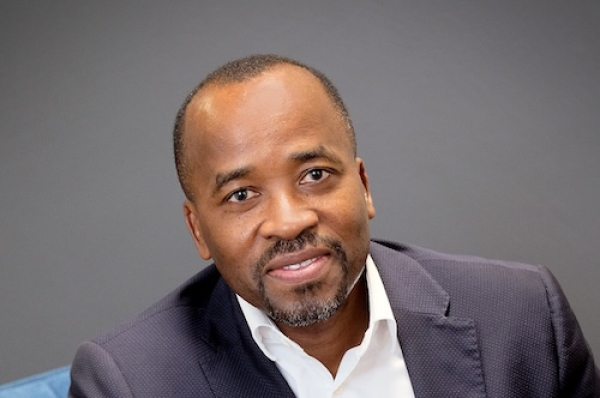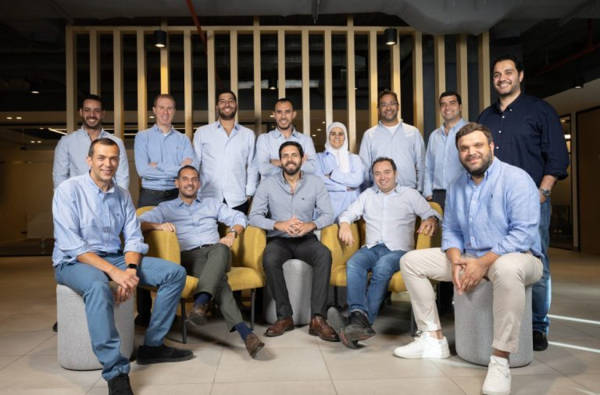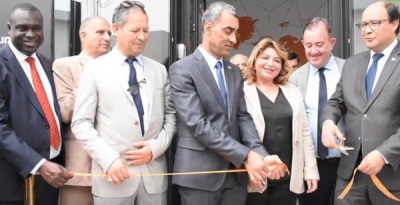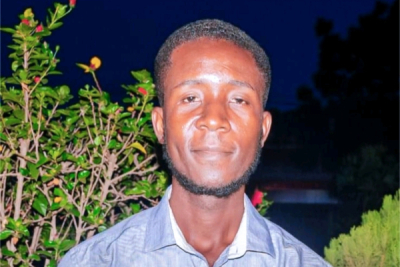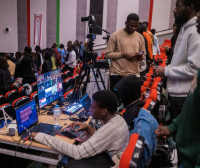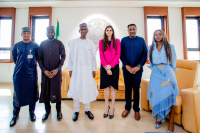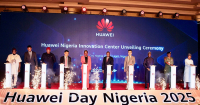AI fairness and inclusivity depend on diverse datasets. With Zindi crowdsourcing local data challenges and Cassava powering the infrastructure, the continent is poised to create context-aware AI tools.
Cassava Technologies, a pan-African technology provider, has signed a Memorandum of Understanding (MoU) with Zindi, a professional network for data scientists. The MoU, announced May 12, aims to accelerate the adoption of artificial intelligence (AI) and Graphics Procesing Unit (GPU)-as-a-Service (GPUaaS) solutions across Africa.
“For Africa’s AI ecosystem to grow and thrive, it’s essential to provide platforms and resources,” said Hardy Pemhiwa, President and Group CEO of Cassava Technologies. “Combining our data centres’ advanced GPU capabilities with Zindi’s innovative data science platform creates a powerful foundation for digital advancement.”
The partnership aims to empower African developers and startups with the tools and infrastructure needed to build scalable AI solutions. Through this collaboration, Zindi will leverage Cassava’s GPUaaS infrastructure to enhance its AI model development, while both organizations will explore opportunities to cross-integrate platforms and expand access to talent, data, and innovation.
Zindi, known for organizing AI challenges in partnership with companies, NGOs, and governments, sees the partnership as a catalyst for unlocking locally-relevant AI solutions.
“Zindi is thrilled at the opportunity to partner with Cassava Technologies to strengthen African datasets, address local problems with locally-developed solutions, and help more African AI builders access the resources they need to succeed,” said Celina Lee, CEO and Co-Founder of Zindi.
As digital transformation accelerates across Sub-Saharan Africa, artificial intelligence is emerging as a key driver of economic opportunity. The United Nations projects that AI could contribute up to $1.5 trillion to the region’s economy by 2030, a figure that underscores the urgency of building the infrastructure, talent pipelines, and innovation ecosystems needed to capture this potential.
The Cassava–Zindi partnership is a timely response to this opportunity. By combining Cassava’s GPU-as-a-Service capabilities with Zindi’s pan-African network of data scientists, the collaboration directly supports scalable, locally driven AI development, a critical step toward unlocking the region’s projected AI-driven growth.
This announcement follows Cassava’s 2024 launch of its AI business and its bold plans to build Africa’s first AI factory. The Zindi partnership supports Cassava’s broader vision of fostering responsible AI innovation and digital transformation across the continent.
Hikmatu Bilali
Nawy, an Egyptian proptech platform, has raised $75 million to fuel its regional expansion, scale operations, and enhance its technology stack. The funding, announced May 12, includes $52 million in Series A equity, led by Partech, and $23 million in debt from top Egyptian banks to support its fast-growing mortgage business.
The Series A attracted leading global and regional investors, including e& Capital, Verod-Kepple, MCI, VentureSouq, Endeavor Catalyst, DPI’s Nclude Fund, Shorooq Partners, and Plug and Play.
The new funds will power Nawy’s market expansion, AI product development, and mortgage vertical growth, positioning it to lead regional real estate innovation.
The Global AgriInno Challenge 2025, organized by the Food and Agriculture Organization (FAO) and Zhejiang University (ZJU), is accepting applications from young innovators and agritech entrepreneurs developing digital solutions for sustainable agrifood systems. Finalists will pitch their innovations at the FAO Science and Innovation Forum in Rome this October.
The challenge seeks innovations addressing climate resilience, supply chain efficiency, and nutritional security. Participants will benefit from a 48-hour co-creation bootcamp with global mentors, expert coaching from UN agencies, investors, and private sector leaders, and access to the Global AgriInno Challenge alumni network.
Winning teams will receive up to $30,000 in seed funding and full sponsorship, including travel, visa, accommodation, and meals, to attend the final event in China. The deadline to submit an expression of interest is 7 June 2025.
- Orange Tunisia inaugurated a TIER III data center in Kalâa Kebira, Sousse, to enhance local data hosting and support the country's digital transition.
- Covering 1,000 m², the center offers cloud hosting, backup, disaster recovery, and connectivity, designed entirely from scratch with Tunisian expertise.
Orange Tunisia last week unveiled a new, advanced data center in Kalâa Kebira, Sousse governorate, local media reported. The TIER III certified facility aligns with the operator's strategy to bolster Tunisia's digital transformation by increasing domestic data hosting capabilities.
The 1,000 square meter data center is built to international standards for security, energy redundancy, and service continuity. It will offer cloud hosting, backup, disaster recovery, and connectivity services, catering to both Orange Tunisia's internal operations and businesses seeking secure outsourcing for their information systems management.
"We are particularly proud of this data center for several reasons. Firstly, it was designed and built entirely from the ground up. This isn't a renovation or adaptation of an existing site, but a completely new project conceived from the start to meet the most stringent standards," stated Thierry Millet, CEO of Orange Tunisia. The company holds a 26.5% share of Tunisia's mobile telephony market as of January 2025, according to the National Telecommunications Authority.
This development occurs amidst an accelerating digital transformation within Tunisia. Orange Tunisia aims to support this momentum and contribute to enhanced digital sovereignty. "Our pride lies in having executed this impressive TIER III data center with 100% Tunisian talent, utilizing Tunisian companies for design, control, and implementation," said Adel Akrout, the company's network and services director.
With the demand for digital services rapidly increasing, this initiative could position Tunisia as a key regional data hub. It also sets the stage for future sovereign cloud endeavors and strengthens the role of operators in the country's digital advancement.
Adoni Conrad Quenum
The intersection of technology, social innovation, and entrepreneurship is producing new leaders who are tackling today's global challenges. Some are making a significant impact by developing practical solutions for communities.
Togolese computer scientist and tech entrepreneur Kokou Nouvor co-founded Fintou, a startup platform designed to help cultural figures, organizations, and companies fund and execute their projects through crowdfunding.
Established in 2022, Fintou specializes in financial technology, offering innovative solutions to streamline digital project management, including fundraising, ticketing, sales, and communication. Its "Fintou Me" feature allows users to easily receive payments via a unique link or QR code, eliminating the need for a website.
Fintou also facilitates the launch of participatory campaigns with clearly defined goals and incentives to effectively engage donors. The platform enables users to create customizable donation pages that can be seamlessly integrated into websites or applications. Additionally, it simplifies the organization of online events and rapid ticket sales.
Users can also create simple and secure voting systems, both free and paid, to involve their community in collective decision-making. Furthermore, Fintou supports the sale of physical or digital products, providing a QR code for easier distribution and increased sales. Finally, the platform offers the option to build an online showcase to present projects, teams, and values, enhancing audience engagement.
Beyond his entrepreneurial ventures, Nouvor trains children in coding at Nehemiah Lab, an entrepreneurship-focused center. Prior to co-founding Fintou, he launched DobbeePay in 2019, a Togolese online payment and money transfer solution enabling interoperability between various payment methods like Mobile Money, cryptocurrencies, and bank transfers.
Nouvor earned a bachelor's degree in law from the University of Lomé in 2017. In 2024, he obtained a professional diploma in software engineering from the European Open University.
His professional journey began in 2019 as a freelance web developer. In 2022, he joined Airline Profits, an aviation magazine, as a developer and graphic designer. The following year, he became a software engineer and digital project manager at Éditions SYDO, a publishing house involved in book releases and cultural events.
Concurrently, he served as technical director at Gurvio Labs, a digital transformation company. In 2023, he also worked as a software developer and digital transformation advisor for the non-profit association 5D'S, which focuses on youth growth and empowerment.
By Melchior Koba,
Editing by Sèna D. B. de Sodji
African freelancers frequently face persistent challenges in receiving payments. To tackle this problem, Benaiah Wepundi has created a financial platform to provide quick access to their funds.
Kenyan software engineer and tech entrepreneur Benaiah Wepundi founded Payd, a financial platform launched in 2022 aimed at streamlining international payments for freelancers, creatives, and digital workers in emerging markets.
Payd's goal is to simplify how these professionals receive payments globally, spend locally, and access financial services such as savings, credit, and management tools. The platform allows users to generate personalized payment pages, payment links, and QR codes, as well as issue invoices and receipts.
"We asked ourselves: Why should independent workers — the backbone of the modern economy — be penalized for their global reach? This question ignited our passion to build Payd," Wepundi said.
To date, Payd has helped reduce delays, costs, and stress associated with international money transfers. The platform has garnered over 18,000 users across 15 countries, processed more than $500,000, and recorded over 45,000 transactions.
Prior to launching Payd, Wepundi established EasyHouse Africa in 2021, a Kenyan-based tech company focused on simplifying property rentals. He earned a software engineering degree in 2023 from Moringa School, a learning accelerator, and is currently pursuing law studies at the Catholic University of Eastern Africa.
Between 2023 and 2024, Wepundi served as Chief Operating Officer at Cyphon AI, a U.S.-based tech firm. Concurrently, he also worked for Precision Consulting, an American research firm, where he held roles as a software engineer, business development manager, and ultimately, chief technology officer.
By Melchior Koba,
Editing by Sèna D. B. de Sodji
Innovate Africa, a product-focused venture fund, will host World Product Day Lagos 2025 on Wednesday, May 21, at The Strong Tower Hall, Lagos.
Part of the global Mind the Product initiative celebrated in 100+ cities, the event will bring together product builders, engineers, founders, and tech teams for expert talks, workshops, and a live pitch showcase.
Under the theme “Bold Builders Wanted,” the event follows a continent-wide innovation sprint that began in March with an open Ideathon. Innovate Africa selected 12 major challenges across health, climate, governance, and infrastructure, guiding teams through product sprints to prototype stage. The top five teams will pitch live for a $2,000 prize and post-event support, including potential incubation and mentorship.
- Bolt ends services in Tunisia on May 9, following government actions related to money laundering, tax fraud, and illegal operations.
- Shutdown impacts over 5,000 independent drivers, sparking debate on Tunisia's legal framework for digital platforms amid high unemployment.
Estonian ride-hailing application Bolt ceased operations in Tunisia on Friday, May 9, with a complete deactivation of the app confirmed on local devices. Since that date, the application is inaccessible, displaying the message "Bolt is not yet available here" to Tunisian users.
This shutdown follows nearly six weeks after the government's decision on March 24 to suspend several transport platforms, including Bolt, amid suspicions of money laundering, tax evasion, and illegal operation. Despite the announced suspension, the application had remained partially active, creating legal ambiguity regarding its status. This deactivation marks the effective end of Bolt's activity in the country, although the company has not yet publicly stated the specific reasons for its withdrawal.
Tunisian authorities had previously initiated stringent measures against platforms operating without legal authorization. In Bolt's case, the company was removed from the national business register, its offices were closed, and assets estimated at 12 million Tunisian dinars (approximately $3.9 million) were seized. Bolt, for its part, had denied the accusations, asserting its compliance with Tunisian law while criticizing a process conducted without due legal recourse.
Bolt, which entered Tunisia in 2019, had rapidly become a significant player in urban transportation, particularly in Tunis, Sfax, and Sousse. The application provided income for over 5,000 drivers, many of whom were independent contractors, in a challenging socio-economic environment. Its suspension heightens uncertainty for these workers, especially given that the national unemployment rate had already reached 16% in the third quarter of 2024, according to the National Institute of Statistics.
Bolt's departure has reignited discussions about the legal framework for digital platforms in Tunisia. The absence of clear regulations leaves companies operating in a precarious gray area, susceptible to administrative actions and regulatory shifts. To fully leverage the digital economy and attract foreign investment, Tunisia will need to strike a balance between regulatory oversight and economic appeal.
By Samira Njoya,
Editing by Sèna D. B. de Sodji
Aligning with global tech leaders can position Nigeria to attract more foreign direct investment (FDI), encourage local innovation, and integrate more deeply into the global digital economy.
Nigeria and Google are continuing their discussions to make the country a hub for digital innovation in Africa. During a two-day workshop held on May 6th and 7th, 2025, they explored refining a draft implementation framework. The partnership stems from a meeting between President Bola Ahmed Tinubu and Google CEO Sundar Pichai in Paris in February 2025
The National Information Technology Development Agency (NITDA), acting under presidential directive, is coordinating the project with Google, identifying practical use cases and stakeholder needs across sectors. During the workshop, Google showcased successful global digital interventions to demonstrate how targeted investment in technology can improve economic resilience, institutional efficiency, and social inclusion.
Structured around five core pillars, the collaboration focuses on building scalable digital infrastructure, empowering the workforce with digital skills, driving AI innovation and research, promoting cloud adoption for digital government, and strengthening investment frameworks for sustainable growth.
The collaboration builds on Google's earlier commitment of ₦2.8 billion (approximately $3.6 million), announced in October 2024, to support Nigeria’s digital economy—an investment aligned with the Federal Government’s Strategic Blueprint for Digital Transformation.
The partnership marks a pivotal step in fast-tracking digital transformation, economic growth, and job creation within Africa’s largest economy. With the World Economic Forum projecting that AI and automation will generate 97 million new jobs globally by 2025, equipping Nigerians with AI and digital skills is critical, not only to bridge the digital divide but also to future-proof the workforce and ensure inclusive participation in the digital economy.
Hikmatu Bilali
The Innovation Center aligns with Nigeria’s digital strategy and the federal government’s Renewed Hope Agenda, reinforcing Huawei’s role in building an intelligent, inclusive future for the country.
Huawei has launched an Innovation Center in Lagos as part of the inaugural Huawei Day Nigeria 2025, a three-day event held May 6-8, which marks 25 years of Huawei’s presence in Nigeria.
The Centre is intended to function as a collaborative hub where customers, partners, and ICT professionals can engage with emerging technologies and co-create innovative solutions across key sectors, including education, energy, finance, governance, and oil & gas. It underscores Huawei’s commitment to advancing local technology and co-innovation.
Speaking at the launch, Huawei Nigeria CEO Chris Lu highlighted the company’s longstanding partnership with Nigeria, stating, “This Innovation Center marks the start of our next chapter—ushering in an AI-driven era with local cloud and green energy solutions.”
Minister of Communications and Digital Economy Dr. Tijani praised the center as a platform for co-creating technologies that address local needs, helping Nigeria transition from tech consumer to creator.
The Information and Communication Technology (ICT) sector has become a significant contributor to Nigeria's economy. According to the National Bureau of Statistics (NBS), the digital economy contributed 13.12% to Nigeria’s GDP in Q1 2024, underscoring the sector's potential to drive economic growth. Huawei's Innovation Center is poised to play a crucial role in this growth by fostering technological innovation and supporting the digital ecosystem.
Hikmatu Bilali
More...
The Moroccan startup is aiming to bridge the gap between purchasing power, social responsibility, and logistical efficiency.
Savey, a digital solution developed by a Moroccan startup based in Marrakech, is tackling food waste at its source by targeting unsold items from supermarkets and the agri-food industry. The startup was founded in 2021 by Zakaria Ouahi and Malika Hnida.
"During my previous role as an auditor, I witnessed the disposal of hundreds of perfectly edible food products, a significant loss estimated at 2% of daily revenue. Yet, hundreds of thousands of Moroccan consumers could and want to benefit from these offers," Zakaria Ouahi told Moroccan weekly La Vie Eco in 2022.
Through its Software as a Service (SaaS) platform, accessible via the internet without installation, Savey enables agri-food companies, distributors, and local shops to list products nearing their expiration dates, overstocked items, or those with packaging defects. These products are then offered to consumers at discounted prices through a mobile application, transforming potential losses into business opportunities.
The company acts as an intermediary, ensuring product traceability and last-mile logistics while promoting awareness of responsible consumption. Simultaneously, the startup allocates a portion of its revenue to fund social initiatives, notably providing meals to vulnerable populations.
In 2024, Savey earned the distinguished international Orange Social Entrepreneur Prize for Africa and the Middle East (POESAM). The company has commenced its international expansion with a presence in Dijon, France, joining the Village by CA incubator and receiving support from Réseau Entreprendre Bourgogne.
Amidst efforts by agri-food giants to enhance their performance, Savey is positioning itself as a strategic partner, providing an innovative outlet for their surplus goods while addressing the increasing consumer demand for affordable products.
Adoni Conrad Quenum
Driven by a passion for technology, he aims to leverage his expertise to support businesses and merchants in his country. His latest venture streamlines financial transactions.
Hassan Y. Jallow, a Gambian computer scientist and serial entrepreneur, is the founder and chief executive officer of Waychit, an innovative digital solution designed to simplify payments.
Launched in 2022, Waychit is a payment aggregation platform offering customized solutions for Gambian businesses. Its aim is to make financial transactions simpler, faster, and more accessible for payments, receipts, and purchases.
For individuals, Waychit streamlines everyday payments by consolidating services such as refueling, bill payment, mobile credit and data purchases, insurance subscriptions, and online shopping onto a single platform.
For merchants, the solution simplifies payment processing and enhances the customer experience. As an aggregator, it allows businesses to accept various payment methods, potentially increasing sales. Furthermore, it provides valuable insights into consumer behavior, aiding merchants in refining their business strategies.
Prior to Waychit, Jallow founded the startup Assutech in 2015, where he continues to serve as the principal software architect. Specializing in software engineering, Assutech assists companies in automating internal processes to boost efficiency, save time, improve service delivery, and expand their customer base.
Jallow earned a degree in Computer Science and Information Systems from the University of Gambia in 2016. During his time at the university, he held the position of Director of Research and Training at the university’s Information Technology Association.
By Melchior Koba
Editing by Sèna D. B. de Sodji
Her goal is to digitize the cultural, creative, and sports sectors in Francophone Africa. Through her platform, she helps professionals in these fields showcase and monetize their expertise.
Laura Nouhova Kpegli (photo), a Franco-Togolese expert in communication, digital strategy, and artificial intelligence, is the co-founder and chief executive officer of artyBe, a platform designed for booking sports, urban, and cultural activities.
Launched in 2022 by Kpegli and Yawovi David Senyo, artyBe aims to unite the cultural, creative, sports, and digital sectors. The platform's mission is to monetize skills, fostering a more inclusive and accessible digital economy by creating new opportunities and encouraging collaboration across these interconnected fields.
Functioning akin to a social network, the platform connects users with nearby specialized coaches. Individuals can then develop personalized learning, training, or activity programs tailored to their schedules and budgets, all under the guidance of a professional.
Currently, Kpegli also holds the position of head of communication and press relations at the French Institute of Togo. Furthermore, she serves as an ambassador for the Nana Tech Entrepreneurs program of the Togo Digital Agency.
Her dedication to the digital sector has garnered recognition on multiple occasions. In 2021, her company was recognized as one of the top ten African artificial intelligence startups at the World Africa Startup Summit. In 2022, it was listed among the top five media/tools at the Togo Digital Awards. More recently, in January 2025, artyBe was named the best national startup by the West African Economic and Monetary Union (WAEMU).
By Melchior Koba
Editing by Sèna D. B. de Sodji
- Guinea seeks digital transformation through Huawei collaboration, focusing on cloud development, public administration digitization, cybersecurity, and youth training.
- Previous meetings addressed key tech initiatives, including 5G deployment, fiber optic expansion, and e-government solutions.
- No formal agreement signed yet, but cooperation aligns with Guinea’s goal of digital inclusion and sustainable development.
Guinea aims to deepen its collaboration with Huawei to speed up its digital transformation. The topic was discussed at a Wednesday, May 7, meeting between Minister Rose Pola Pricemou and a Huawei Guinea delegation.
The talks between the two sides centered on the development of a national sovereign cloud for Guinea, the digitization of its public administration, bolstering national cybersecurity, and the implementation of training programs aimed at skills transfer for young Guineans.
This move underscores the Guinean government's ongoing efforts to strengthen its ties with Huawei. In March 2025, on the sidelines of the Mobile World Congress in Barcelona, Minister Pricemou had previously engaged with company representatives regarding the national data center project and e-government solutions. A prior meeting in December 2024 addressed other key areas, including the deployment of 5G technology, the expansion of the national fiber optic network, the development of digital services within strategic sectors, and training and skills transfer for local stakeholders.
This increased engagement with Huawei aligns with the Guinean government’s ambition to foster public-private partnerships to achieve its digital transformation goals. Authorities believe this approach helps alleviate the substantial investments typically required for such projects. The government "aims to collaborate with innovative partners to accelerate digital inclusion and position digital technology as a catalyst for economic and social development."
The partnership with Huawei, a global technology leader, could prove pivotal in accelerating Guinea's digital transformation. According to the United Nations' "E-Government Survey 2024: Accelerating Digital Transformation for Sustainable Development," Guinea holds a score of 0.4006 out of 1 on the Online Service Development Index (EGDI), ranking 29th in Africa. This represents an improvement from its 2022 score of 0.2955.
However, it's important to note that no official agreement has been signed or announced between the two parties at this juncture. Consequently, future developments will need close monitoring to fully gauge the actual scope of this collaboration and its potential impact.
By Isaac K. Kassouwi,
Editing by Sèna D. B. de Sodji


